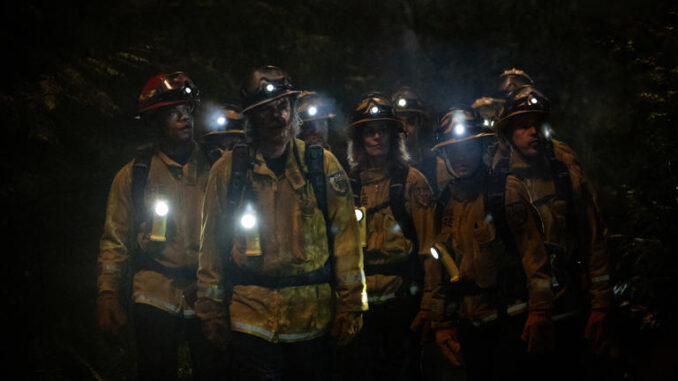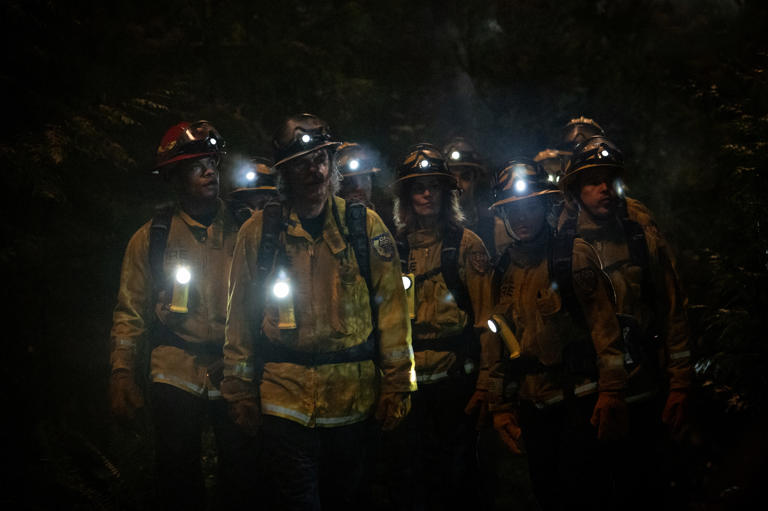
The Ember’s Shadow: The Shocking Way ‘Fire Country’ Might Handle Its Cast Departures
Fire Country has carved out a unique space in the landscape of network television, blending the high-stakes drama of firefighting with the raw, emotional complexities of family and redemption. Its world, defined by crackling flames and tight-knit community, thrives on the profound connections between its characters. When the inevitable winds of change blow, demanding the departure of a beloved cast member, the show faces a choice: a quiet fade into the background, a heroic blaze of glory, or a method that leaves not just a void, but a lasting, smoldering scar on the very soul of Edgewater. To truly shock and resonate, Fire Country might just opt for the latter – not merely writing a character out, but shattering their legacy.
Typically, cast departures in such a series fall into familiar tropes: a tragic death in the line of duty, a transfer to a new post, or a sudden, unexplained relocation. These methods, while functional, rarely leave a lasting mark beyond the initial grief or mild disappointment. For a show like Fire Country, steeped in moral dilemmas, second chances, and the constant battle against a relentless force, a truly shocking departure would leverage these foundational elements, turning a simple exit into a seismic event that reshapes the narrative landscape for seasons to come.
Imagine, then, the departure of a long-standing, seemingly unblemished character – perhaps an Eve, a Jake, or even a Vince – not through death or transfer, but through a profound, unforgivable act of betrayal or moral compromise. Picture this: a raging inferno threatens Edgewater, and in a moment of unimaginable pressure, fear, or a misguided attempt to protect someone they love, a trusted firefighter makes a decision that leads to catastrophic consequences. It’s not an accident born of the inherent dangers of the job; it’s a deliberate, albeit desperate, choice that puts others at risk, destroys property, or even, indirectly, leads to the injury or death of an innocent.
The “shocking way” wouldn’t be the immediate revelation of this act. Instead, it would unfold as a slow, agonizing burn. The initial story would be one of heroism, of a close call, of a difficult battle fought. But gradually, piece by piece, an unsettling truth begins to surface. A discarded piece of evidence, a conflicting witness statement, a desperate confession made under duress. The character, once lauded, is slowly exposed not as a villain, but as a deeply flawed human being who, in a single, terrifying moment, put their own interests, or those of a loved one, above their sworn duty and the safety of their community.
The departure itself would then be a consequence of this revelation: disgrace, imprisonment, or a forced, permanent exile, unable to face the town they betrayed. But the true shock would lie in the aftermath. For the remaining characters – Bode, Sharon, Vince, the entire Three Rock crew – this wouldn’t just be the loss of a friend or colleague; it would be the shattering of a foundational trust. It would force them to question everything they thought they knew about heroism, loyalty, and the very fabric of their chosen family.
How would Vince and Sharon, pillars of the community, cope with the betrayal of someone they considered kin? How would Bode, perpetually striving for redemption, grapple with the knowledge that someone supposedly better than him succumbed to such a profound moral failing? The lingering questions, the quiet doubts, the suspicion that perhaps even the most steadfast among them could crack under pressure – these would become thematic embers that glow long after the character has left the screen.
Such a departure wouldn’t just be shocking; it would be illustrative of the show’s core message: that even in a world of heroes, humanity’s shadows persist. It would demonstrate that the battle isn’t just against the fire, but against the internal demons that can engulf the soul. It would leave a lasting legacy of moral ambiguity, forcing Edgewater, and its viewers, to constantly re-evaluate who they trust and what true heroism demands. In the end, a character might leave Fire Country not with a bang or a whimper, but with the chilling echo of shattered trust, a stark reminder that some fires burn from within.

